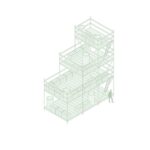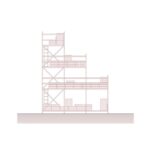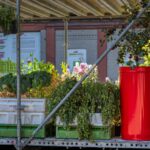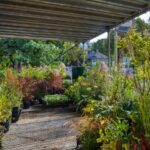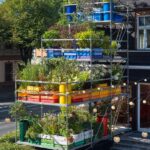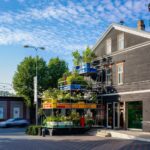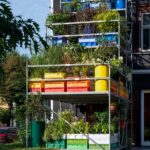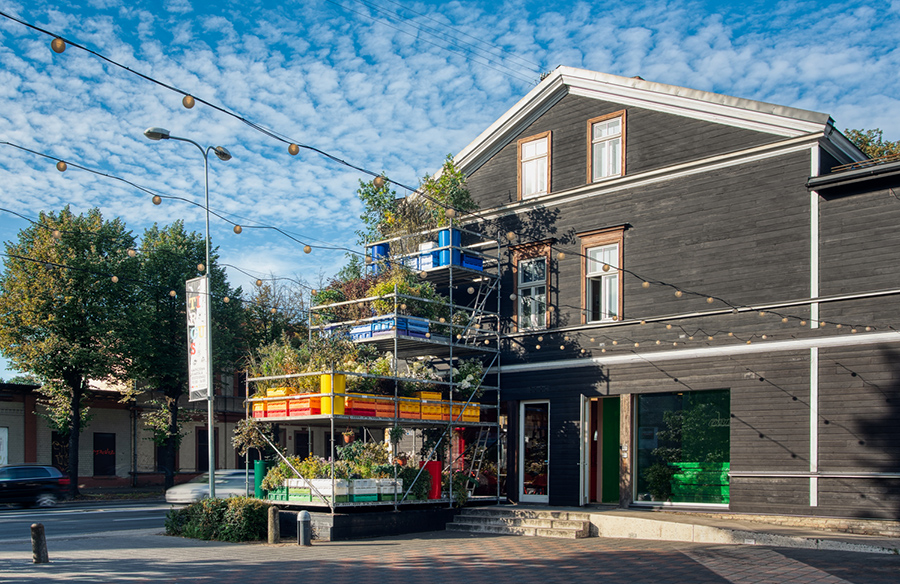
The G(U)ARDEN Vertical Urban Garden, conceived by the architectural firm Annvil, stands as an experimental research project aimed at exploring the intricate relationship between urban environments and horticulture. In collaboration with urban planners, designers, and experts in environmental and natural sciences, this initiative seeks to unravel the impacts of urban settings on plant cultivation.

Fostering Sustainable Urban Environments
Urban agriculture holds immense potential in mitigating air pollution, managing runoff effectively, optimizing land productivity, and moderating urban temperatures. However, uncertainties linger regarding the safety of food produced in urban gardens. To address this gap, Annvil has erected the first urban vertical garden in Riga, Latvia, serving as a platform for interdisciplinary research.
Promoting Local Sustainability
Comprising locally sourced plants, the G(U)ARDEN underscores the importance of local cultivation and global resource conservation. By engaging city residents in the process of urban gardening, the project aims to spark conversations and cultivate public interest in sustainable urban living. Anna Bates, the project lead, emphasizes the need to reconnect with nature amidst the digital age, advocating for more green spaces as communal meeting points.

Long-term Research Endeavor
As a pilot project, G(U)ARDEN embarks on a comprehensive scientific inquiry into urban agriculture. Through laboratory analysis, researchers evaluate the harvest’s safety, examining heavy metal presence and microbiological composition. Irina Sivicka, a project researcher, highlights the significance of data-driven insights in understanding the correlation between urban pollution and crop safety. Architect Ilze Rukmane-Poča contributes to project development, ensuring a holistic approach to urban garden implementation.
Implications for Urban Planning
The findings from the G(U)ARDEN experiment will inform the establishment of urban gardens across major Latvian cities. By integrating scientific evidence into urban planning, initiatives like G(U)ARDEN pave the way for sustainable, health-conscious urban landscapes. Through continued research and collaborative efforts, Latvia aims to foster greener, healthier urban environments for its citizens.
The G(U)ARDEN Vertical Urban Garden serves as a testament to the intersection of architecture, environmental science, and community engagement, embodying Latvia’s commitment to sustainable urban development.


